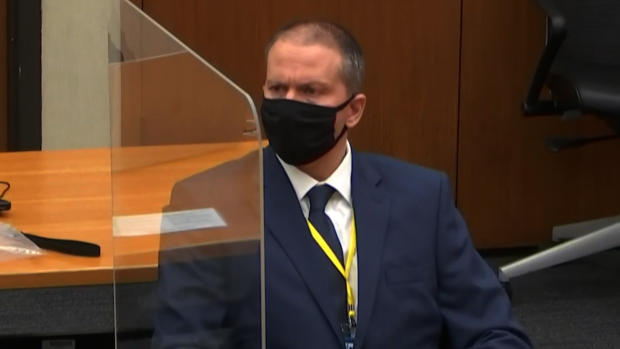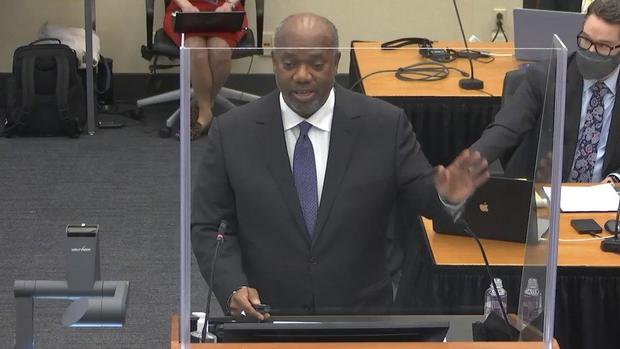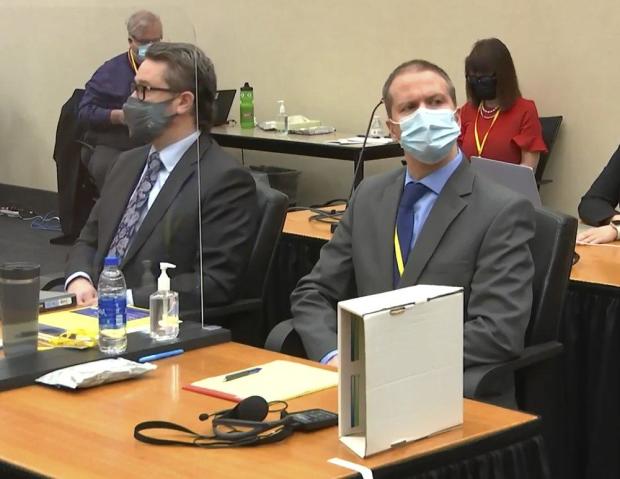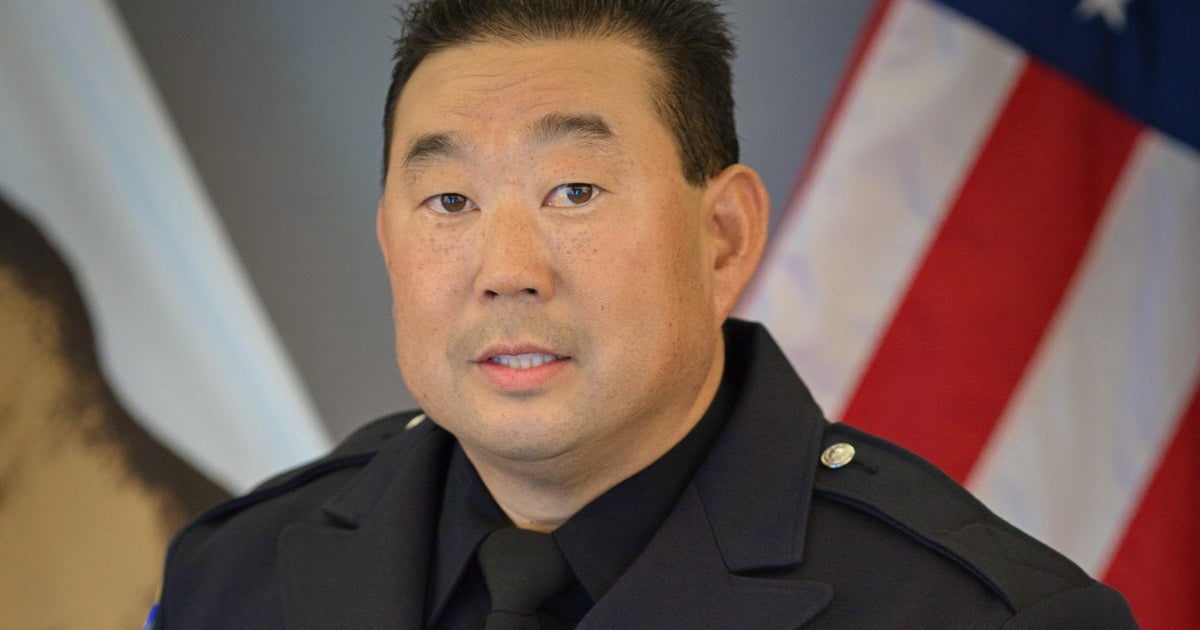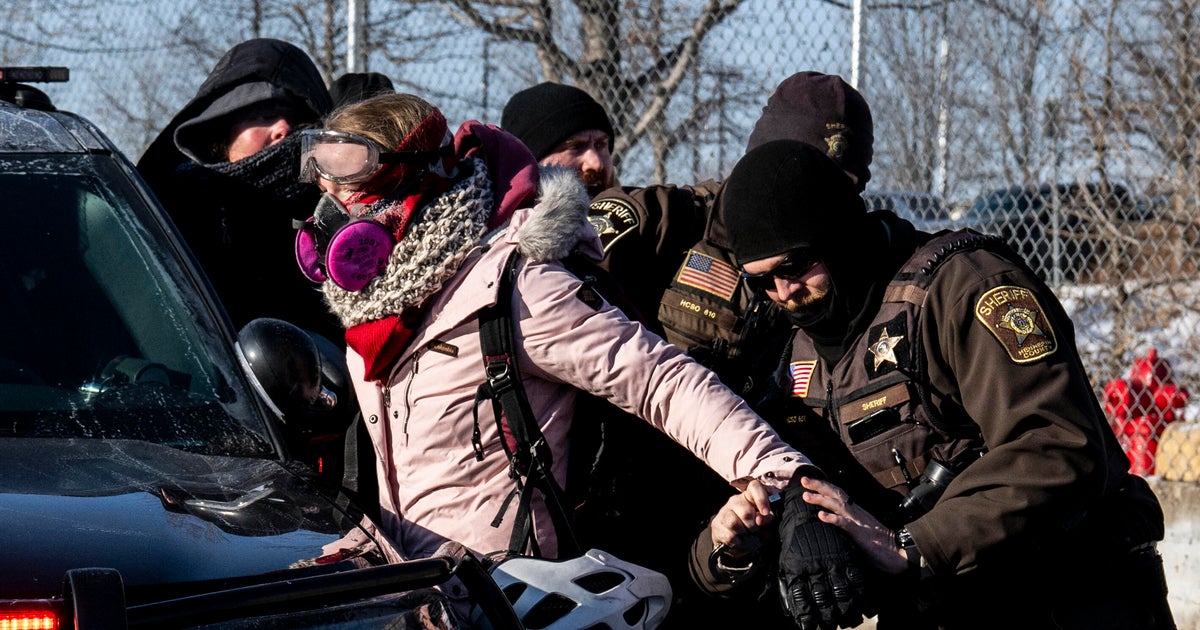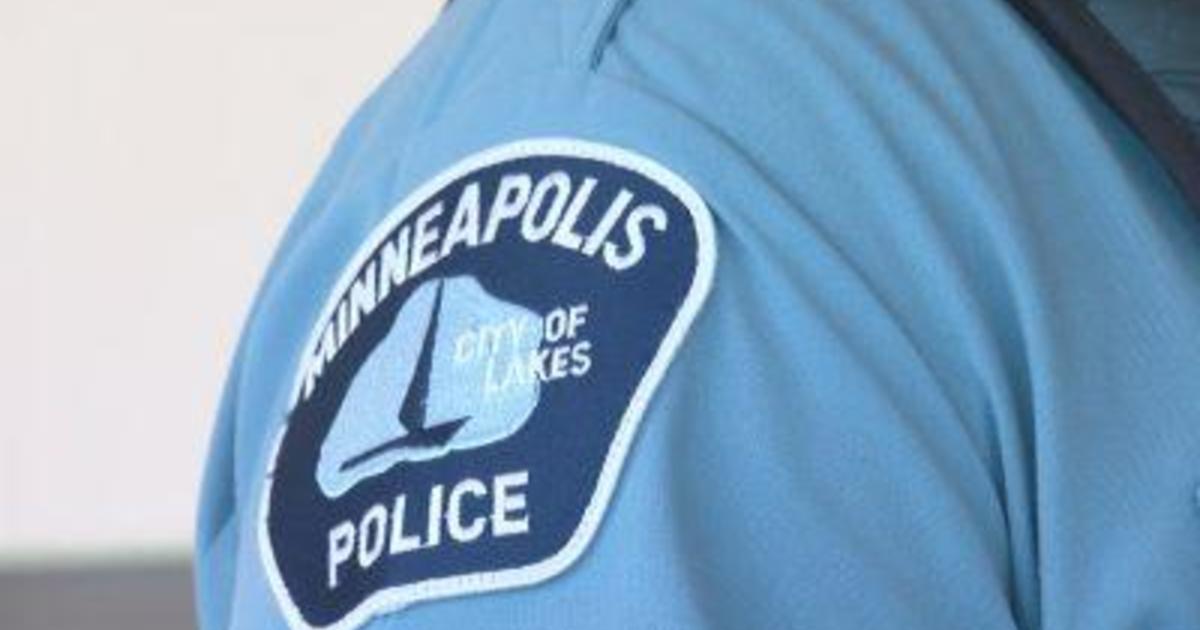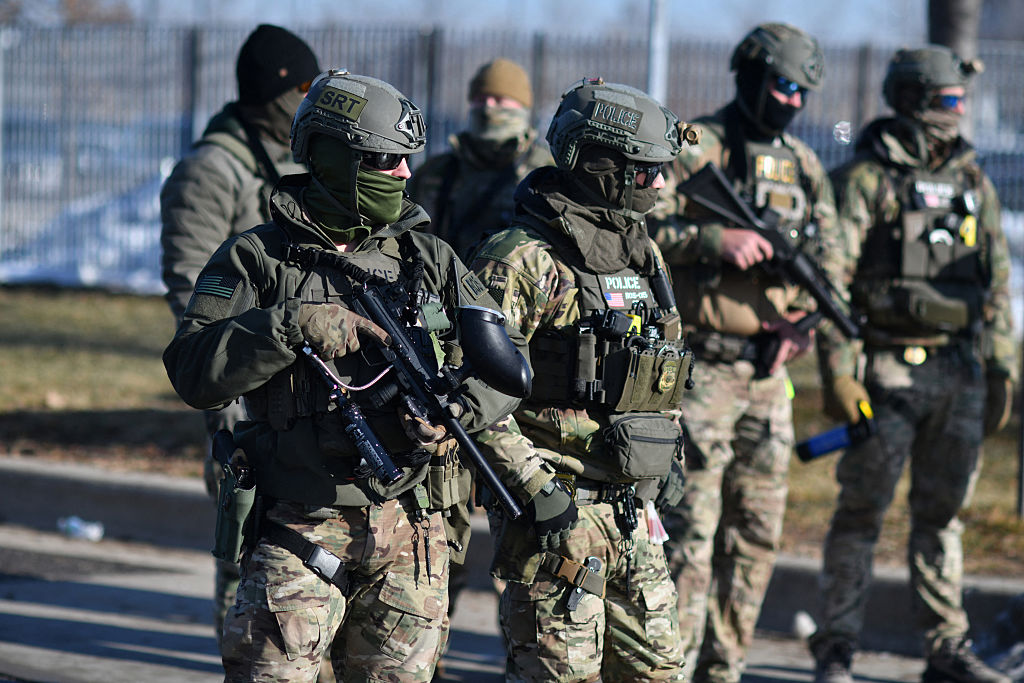Derek Chauvin Trial 3/29/21: Witness describes watching George Floyd "slowly fade away" as testimony begins in Chauvin trial
Follow the latest trial updates here. Earlier coverage is below.
Testimony began Monday following opening statements in the trial of Derek Chauvin, the former Minneapolis police officer charged in the death of George Floyd. Chauvin, who was seen in a disturbing video kneeling on the neck of the unarmed Black man, is charged with second-degree murder, third-degree murder and second-degree manslaughter.
Prosecutors played the video of Floyd's death for the jurors during their opening statements, saying Chauvin used lethal force against a "defenseless" and handcuffed Floyd for nine minutes and 29 seconds. Prosecutor Jerry Blackwell said Floyd died of oxygen deprivation beneath the pressure of Chauvin's knee, but defense attorney Eric Nelson argued Floyd died of a heart arrhythmia complicated by the fentanyl and methamphetamine he had ingested before his arrest.
Following opening statements, prosecutors called their first witness to the stand, a 911 dispatcher who said she called a police sergeant when she saw officers restraining Floyd on video footage from a camera across the street.
The day ended with disturbing testimony from a former wrestler trained in mixed martial arts who described watching Floyd "slowly fade away."
Floyd's killing last year drew outrage and a worldwide reckoning on police reform and racial justice. Three other officers involved in the fatal May 2020 arrest are charged with aiding and abetting, and will be tried jointly in August. Chauvin has pleaded not guilty.
Fifteen jurors, four of whom are Black and two of whom are multiracial, were chosen during a weeks-long jury selection process earlier this month. One was dismissed at the beginning of the proceedings, leaving 12 jurors and two alternates to hear the case.
The trial is expected to span two to four weeks at the heavily secured Hennepin County Government Center in downtown Minneapolis, after which the jury will launch into deliberations. Judge Peter Cahill is limiting attendees in the courtroom due to COVID-19 concerns and is allowing for the proceedings to be televised, a rarity in the state.
Before court on Monday, civil rights attorney Ben Crump said the trial would be emotional for Floyd's family, whom he represents. Crump said though the family had received a $27 million settlement from the City of Minneapolis, they are seeking "full justice" in the criminal trial.
"What we want to know is, will we see justice?" Crump said. "The whole world is watching."
Testimony is scheduled to resume Tuesday at 9:30 a.m. local time (10:30 a.m. ET.)
Former wrestler who tried to intervene in Floyd's death testifies
A former high school and college wrestler who tried to intervene during Floyd's fatal encounter with police, Donald Williams II, has been called to the stand. Prosecutor Matthew Frank asked Williams, who has been trained in mixed martial arts, about his training with chokeholds.
Williams said he had just come from a fishing trip with his son and was heading to Cup Foods May 25 when he saw Floyd's encounter with officers, and a concerned crowd beginning to gather. Williams said he stopped and began to watch the situation unfold, saying he "heard George on the ground pretty much pleading for his life." Williams repeatedly yelled for Chauvin to relieve pressure on Floyd's neck.
Williams said he recognized from his mixed martial arts training that Chauvin was using a "blood choke" on Floyd, which he said could result in death by cutting off circulation. When he said that to Chauvin, he said Chauvin looked up at him.
Williams said Floyd's breathing was getting more and more labored. "He barely could move while he was trying to get air," Williams said. He said he saw Floyd's eyes rolling into the back of his head and blood coming out of his nose. Williams described watching Floyd "slowly fade away, like a fish in a bag," referring to the fish he had just caught.
Eventually, Williams said Floyd "didn't have no life in him no more."
Williams said officer Tou Thao, the officer who ordered bystanders to stay away from Floyd and Chauvin, told bystanders "this is what drugs do to you." Williams said that "pissed me off more, because that wasn't the case."
Williams said Thao, one of the officers charged with aiding Chauvin, "controlled the people — he controlled me."
"He was the guy that let it go on while it went on," Williams said.
Outside of the presence of the jury, Judge Peter Cahill warned Williams that he can reference what he saw, but should not make inferences or offer his opinion. Cahill suspended court for the day after a technical issue interrupted the video feed for family members watching from outside the courtroom.
Ex-gas station employee who filmed video called to stand
Prosecutors called Alisha Oiler, a 23-year-old former employee at the Speedway gas station across the street from Cup Foods, to the stand. Prosecutor Steve Schleicher began playing a series of cellphone videos that Oiler took of Floyd's fatal arrest with her phone, interspersed with the city surveillance camera.
Oiler testified she started recording Floyd's fatal encounter with police because "police are always messing with people, and it's not right."
In response to questions by defense attorney Eric Nelson, Oiler said more and more people started gathering as the incident progressed. When Nelson asked whether she would characterize the crowd as "upset" or "angry," Oiler agreed. Nelson then asked whether the feeling of anger was different in the moment than it was when being discussed in the courtroom, but Oiler pushed back.
"I think if you're still about this situation, you're still going to be upset about it," Oiler said.
Prosecutors and defense attorneys finished questioning Oiler shortly after 3:30 p.m. local time (4:30 p.m. ET.)
Defense cross-examines 911 dispatcher
Court resumed session around 1:30 p.m. local time (2:30 p.m. ET). Defense attorney Eric Nelson began cross-examining the 911 dispatcher, Jena Scurry.
Nelson played the city surveillance video that Scurry had referenced, pointing out that it showed the squad car moving back and forth as officers tried to get Floyd inside the car.
"What you observed was a struggle between officers and a person they were trying to arrest?" Nelson asked. "And the struggle ultimately resulted in that squad shaking back and forth, correct?"
"Correct," Scurry said.
Nelson pointed out that in her call to the police sergeant, Scurry said that she wasn't sure whether what she was seeing on camera was a use of force that would require the review of sergeant under Minneapolis police policy.
911 dispatcher: "Something wasn't right"
Prosecutors called their first witness to the stand, 911 dispatcher Jena Lee Scurry. They played a portion of the initial 911 call from the Cup Foods convenience store and showed footage from a camera positioned across the street, which Scurry said she could see from her workspace.
As she watched officers hold Floyd down, Scurry said she initially thought the camera was frozen, because the scene hadn't changed. When she was told the video hadn't frozen, she said she had a "gut instinct" that something was wrong and called a police sergeant.
"My instincts were telling me that something wasn't right," Scurry said.
The court session broke for lunch after prosecutors finished their questioning of Scurry.
Defense: "There's always two sides to a story"
Nelson urged jurors to use common sense and "examine the totality of the circumstances" in the case to determine whether the use of force is reasonable. "Common sense tells us there's always two sides to a story," Nelson said.
Nelson said evidence in the case amounts to more than 50,000 items, saying, "The evidence is far greater than nine minutes and 29 seconds."
Nelson said that the attempt to get Floyd into custody was "not an easy struggle." "You will see that three Minneapolis police officers could not overcome the strength of Mr. Floyd," Nelson said.
Nelson argued that police officers must respond to rapidly evolving situations. Chauvin, he said, "did exactly what he was trained to do over the course of his 19-year career."
Defense disputes Floyd's cause of death
In his opening statement, Nelson offered a different explanation for Floyd's death. Nelson said he would provide evidence to show that Floyd died of cardiac arrhythmia, hypertension and coronary disease, and that the ingestion of drugs and the adrenaline in his body "all acted to further compromise an already compromised heart."
Nelson said an autopsy showed coronary disease and an enlarged heart, and toxicology tests revealed the presence of fentanyl and methamphetamine. A medical examiner found no tell tale signs of asphyxiation, and no evidence Floyd's airflow was restricted, he said.
Nelson said a significant issue in the trial would be, "What was Mr. Floyd's actual cause of death?"
Nelson said jurors will hear from employees at Cup Foods, where he said Floyd had used a counterfeit $20 bill to buy a pack of cigarettes. He said they approached the car Floyd was sitting in with two friends to ask him to return the cigarettes or pay for them, but Floyd refused. He said the Cup Foods employee who called police to report Floyd said he appeared to be under the influence of something or drunk.
Nelson said evidence will show that Floyd had taken drugs in the car before he was approached by police, and put drugs in his mouth when he was initially approached by officers in an attempt to conceal them. Later, Nelson said, two partially dissolved pills were found in the squad car that were comprised of fentanyl and methamphetamine, both with Floyd's DNA.
Prosecutor: Floyd died of oxygen deprivation
Prosecutor Jerry Blackwell said Floyd died from oxygen deprivation, "one breath at a time," over an extended period of time. He said jurors would hear evidence from experts to show that Floyd was "pancaked" between the pavement and the pressure from Chauvin, with no room for his lungs to expand.
Blackwell said Floyd did not die of a drug overdose, as the defense has suggested. Blackwell said Floyd had fentanyl in his system at the time of his death, but that he had developed a tolerance to the drug after struggling with opioid addiction for years.
Blackwell said someone who died of an opioid overdose would appear to be asleep.
"They're not screaming for their lives, they're not calling for their mothers, not begging 'Please, please, I can't breathe,'" Blackwell said. "That's not what an opioid overdose looks like."
The cause of Floyd's death is expected to be a key point of dispute at trial.
Video of Floyd's death played in court
Blackwell played the bystander video that showed Chauvin kneeling on Floyd's neck as the unarmed Black man begged for air. Before playing the video, Blackwell warned jurors it would be difficult to watch.
He said jurors would hear from a police commander who would testify that Chauvin was a 19-year police veteran who had been trained multiple times in CPR. Despite that, Blackwell said, Chauvin did not let up or attempt to help Floyd. Blackwell said Chauvin also stopped others who tried to help, including a member of the Minneapolis Fire Department.
Blackwell said jurors would hear from bystanders during the trial, including the first responder, about what they saw. Each bystander, Blackwell said, "saw something that was shocking to them, that was disturbing to them, and made them stop and take note."
Blackwell said jurors will also hear from Minneapolis Police Chief Medaria Arradondo that Chauvin's use of force was unreasonable.
"He will not mince any words — he's very clear. He'll be very decisive. This was excessive force," Blackwell said.
Blackwell said the case was about Chauvin's actions, not a referendum on all police or policing in general.
Prosecutor: Chauvin "betrayed this badge"
At the beginning of opening statements, Blackwell said the Minneapolis Police Department has a policy to uphold the sanctity of human life. Derek Chauvin, he said, "betrayed this badge" when he kneeled on Floyd's neck for over nine minutes on May 25, 2020.
Blackwell said Minneapolis police policy requires officers to evaluate the use of force from moment to moment, and officers are not allowed to use any more force than is necessary to bring a person under their control. He said jurors would hear from a use-of-force expert that will say Chauvin used "lethal force" against Floyd, who was "defenseless, who was handcuffed, who was not resisting."
Blackwell said jurors would see the video in which Floyd begged 27 times that he couldn't breathe. He said Chauvin "does not let up, and he does not get up" even after he's told twice that Floyd has no pulse and after paramedics arrive with a gurney.
He said Chauvin kneeled on Floyd's neck for a total of nine minutes and 29 seconds.
Judge swears in jury
Judge Peter Cahill administered an oath to the jury panel, formally swearing them in as jurors just before 10:30 a.m. He instructed them to listen carefully to proceedings and keep an open mind as they weigh witness testimony. The jurors have been given notepads and will be allowed to take notes; the judge said they will not be provided a trial transcript for their deliberations.
Cahill warned the panel to avoid media coverage of the case and to refrain from posting about it on social media.
Sharpton: "Chauvin's in the courtroom, but America's on trial"
Speaking Monday morning, Floyd's nephew Brandon Williams said it's difficult for the family to travel to Minneapolis, but the trip for the trial was easier because "we came for one thing and one thing only — we came to get justice, and nothing less."
Williams said the family would continue to talk about justice because someone needs to be held accountable for Floyd's death.
Floyd's brother Terrence Floyd said he had watched the disturbing video of his brother's death again and again, not out of anger, but because it was the last time he was able to hear his brother's voice.
"Every time I watched it, it made me stronger, because I knew they murdered him," Terrence Floyd said. "But we're still Floyd strong, and we're still here, so we're gonna hold it down for him."
Civil rights leader Al Sharpton called Floyd's death a "lynching" and said the trial will mark whether police officers can be held accountable in the U.S.
"Chauvin's in the courtroom, but America's on trial," Sharpton said.
Crump: "The whole world is watching"
Speaking Monday, Floyd family attorney Ben Crump called the case a "landmark trial" that will serve as "a referendum of how far America has come in its quest for equal justice."
Family members including Floyd's cousins, brothers, sister and young daughter Gianna were in Minneapolis, Crump said, along with civil rights leader Al Sharpton, who stood by.
Crump said he expected that Chauvin's defense would attempt to focus on Floyd's criminal record, but said the focus should instead be on Chauvin.
"George Floyd didn't kill anybody," Crump said. "Derek Chauvin was the person that killed George Floyd. So why is it that we allow them to assassinate the character of George Floyd after they assassinate his person?"
Lawyer Justin Miller, who represents Floyd's daughter, agreed, saying, "George Floyd is not on trial. This is the trial of Derek Chauvin."
Crump said the trial would be emotional for the family. Crump said though the family had received a $27 million settlement, they are seeking "full justice" in the criminal trial.
"What we want to know is, will we see justice?" Crump said. "The whole world is watching."
Crump and Floyd's brother Philonise also spoke about their hopes for justice on "CBS This Morning."
The charges
In order to convict Chauvin of second-degree murder, prosecutors will need to prove beyond a reasonable doubt that Chauvin caused Floyd's death while committing or attempting to commit a related felony, in this case third-degree assault. To convict the former officer of third-degree murder, prosecutors must convince the jury that Chauvin caused Floyd's death during an act that was "eminently dangerous to others and evincing a depraved mind, without regard for human life."
The charge was initially dropped by Cahill, but was re-instated earlier this month after an appeals court handed a win to prosecutors.
To convict Chauvin of second-degree manslaughter, prosecutors will need to prove beyond a reasonable doubt that Chauvin caused Floyd's death by "culpable negligence," meaning he created unreasonable risk and consciously took a chance of causing death or serious harm.
Prosecutors do not need to prove that Chauvin intended to cause Floyd's death. Since police officers are authorized to use force, prosecutors must prove that the force Chauvin used against Floyd was unlawful.
In Minnesota, second-degree murder carries a maximum sentence of 40 years in prison. Third-degree murder is punishable by up to 25 years. Second-degree manslaughter carries a maximum prison term of 10 years.
Key players
Hennepin County District Judge Peter Cahill will preside over the trial.
The office of Minnesota Attorney General Keith Ellison is handling the prosecution against Chauvin, and Chauvin's defense lawyer is Eric Nelson.
Though 15 jurors were selected, one will likely be dismissed at the beginning of the proceedings, leaving 12 jurors and two alternates to hear the case. The nine women and six men range in age from 20s to 60s. Nine are White, four are Black and two identify as multiracial. The identities of the jurors are being kept secret, and all have said they can render an impartial verdict despite the massive amount of publicity the case has received.
Under COVID-19 protocols, the courtroom will have space for a television technician to operate the broadcast, the judge, four lawyers from the prosecution and four from the defense, jurors and alternate jurors, two members of the media, one member of Derek Chauvin's family and one member of George Floyd's family. The judge has said different family members may rotate using the seat, but will not be allowed in the courtroom at the same time.
Lawyers Ben Crump and Antonio Romanucci said in a statement the ruling to allow only one family member in court disappointed Floyd's family members, "many of whom intended to be in the courtroom to witness this trial."
"The family is looking forward to the start of the trial as a critical milestone on the path to justice and a step toward closure in this dark chapter of their lives," the statement said.
Security concerns
Law enforcement officials are on high alert and have been planning safety precautions for months. They say a cross-departmental plan dubbed "Operation Safety Net" aims to protect lawful, non-violent protests while preventing "large-scale violent civil disturbances," property damage, assault, looting and property damage.
Last month, Minnesota Governor Tim Walz authorized the National Guard to assist local law enforcement agencies. The Minneapolis Star Tribune reports city and county officials will spend at least $1 million to erect fences and other barricades across the city, including fortifications for the city's five police precincts, along with City Hall and the Public Service Building, which face the downtown courthouse where Chauvin will be tried.
